- Home
- F. Scott Fitzgerald
Flappers and Philosophers Page 11
Flappers and Philosophers Read online
Page 11
"Get house—tha's start. Then you get know people. Snobbish town first toward outsider, but not long—after know you. People like you"—he indicated Ahearn and his wife with a sweeping gesture—"all right. Cordial as an'thin' once get by first barrer-bar-barrer—" He swallowed, and then said "barrier," repeated it masterfully.
Evylyn looked appealingly at her brother-in-law, but before he could intercede a thick mumble had come crowding out of Tom Lowrie, hindered by the dead cigar which he gripped firmly with his teeth.
"Huma uma ho huma ahdy um—"
"What?" demanded Harold earnestly.
Resignedly and with difficulty Tom removed the cigar—that is, he removed part of it, and then blew the remainder with a whut sound across the room, where it landed liquidly and limply in Mrs. Ahearn's lap.
"Beg pardon," he mumbled, and rose with the vague intention of going after it. Milton's hand on his coat collapsed him in time, and Mrs. Ahearn not ungracefully flounced the tobacco from her skirt to the floor, never once looking at it.
"I was sayin'," continued Tom thickly, "'fore 'at happened,"—he waved his hand apologetically toward Mrs. Ahearn—"I was sayin' I heard all truth that Country Club matter."
Milton leaned and whispered something to him.
"Lemme 'lone," he said petulantly; "know what I'm doin'. 'Ats what they came for."
Evylyn sat there in a panic, trying to make her mouth form words. She saw her sister's sardonic expression and Mrs. Ahearn's face turning a vivid red. Ahearn was looking down at his watch-chain, fingering it.
"I heard who's been keepin' y' out, an' he's not a bit better'n you. I can fix whole damn thing up. Would've before, but I didn't know you. Harol' tol' me you felt bad about the thing—"
Milton Piper rose suddenly and awkwardly to his feet. In a second every one was standing tensely and Milton was saying something very hurriedly about having to go early, and the Ahearns were listening with eager intentness. Then Mrs. Ahearn swallowed and turned with a forced smile toward Jessie. Evylyn saw Tom lurch forward and put his hand on Ahearns shoulder—and suddenly she was listening to a new, anxious voice at her elbow, and, turning, found Hilda, the second maid.
"Please, Mis' Piper, I tank Yulie got her hand poisoned. It's all swole up and her cheeks is hot and she's moanin' an' groanin'—"
"Julie is?" Evylyn asked sharply. The party suddenly receded. She turned quickly, sought with her eyes for Mrs. Ahearn, slipped toward her.
"If you'll excuse me, Mrs.—" She had momentarily forgotten the name, but she went right on: "My little girl's been taken sick. I'll be down when I can." She turned and ran quickly up the stairs, retaining a confused picture of rays of cigar smoke and a loud discussion in the centre of the room that seemed to be developing into an argument.
Switching on the light in the nursery, she found Julie tossing feverishly and giving out odd little cries. She put her hand against the cheeks. They were burning. With an exclamation she followed the arm down under the cover until she found the hand. Hilda was right. The whole thumb was swollen to the wrist and in the centre was a little inflamed sore. Blood-poisoning! her mind cried in terror. The bandage had come off the cut and she'd gotten something in it. She'd cut it at three o'clock—it was now nearly eleven. Eight hours. Blood-poisoning couldn't possibly develop so soon.
She rushed to the 'phone.
Doctor Martin across the street was out. Doctor Foulke, their family physician, didn't answer. She racked her brains and in desperation called her throat specialist, and bit her lip furiously while he looked up the numbers of two physicians. During that interminable moment she thought she heard loud voices down-stairs—but she seemed to be in another world now. After fifteen minutes she located a physician who sounded angry and sulky at being called out of bed. She ran back to the nursery and, looking at the hand, found it was somewhat more swollen.
"Oh, God!" she cried, and kneeling beside the bed began smoothing back Julie's hair over and over. With a vague idea of getting some hot water, she rose and stared toward the door, but the lace of her dress caught in the bed-rail and she fell forward on her hands and knees. She struggled up and jerked frantically at the lace. The bed moved and Julie groaned. Then more quietly but with suddenly fumbling fingers she found the pleat in front, tore the whole pannier completely off, and rushed from the room.
Out in the hall she heard a single loud, insistent voice, but as she reached the head of the stairs it ceased and an outer door banged.
The music-room came into view. Only Harold and Milton were there, the former leaning against a chair, his face very pale, his collar open, and his mouth moving loosely.
"What's the matter?"
Milton looked at her anxiously.
"There was a little trouble—"
Then Harold saw her and, straightening up with an effort, began to speak.
"Sult m'own cousin m'own house. God damn common nouveau rish. 'Sult m'own cousin—"
"Tom had trouble with Ahearn and Harold interfered," said Milton.
"My Lord Milton," cried Evylyn, "couldn't you have done something?"
"I tried; I—"
"Julie's sick," she interrupted; "she's poisoned herself. Get him to bed if you can."
Harold looked up.
"Julie sick?"
Paying no attention, Evylyn brushed by through the dining-room, catching sight, with a burst of horror, of the big punch-bowl still on the table, the liquid from melted ice in its bottom. She heard steps on the front stairs—it was Milton helping Harold up—and then a mumble: "Why, Julie's a'righ'."
"Don't let him go into the nursery!" she shouted.
The hours blurred into a nightmare. The doctor arrived just before midnight and within a half-hour had lanced the wound. He left at two after giving her the addresses of two nurses to call up and promising to return at half past six. It was blood-poisoning.
At four, leaving Hilda by the bedside, she went to her room, and slipping with a shudder out of her evening dress kicked it into a corner. She put on a house dress and returned to the nursery while Hilda went to make coffee.
Not until noon could she bring herself to look into Harold's room, but when she did it was to find him awake and staring very miserably at the ceiling. He turned blood-shot hollow eyes upon her. For a minute she hated him, couldn't speak. A husky voice came from the bed.
"What time is it?"
"Noon."
"I made a damn fool—"
"It doesn't matter," she said sharply. "Julie's got blood-poisoning. They may"—she choked over the words—"they think she'll have to lose her hand."
"What?"
"She cut herself on that—that bowl."
"Last night?"
"Oh, what does it matter?" see cried; "she's got blood-poisoning. Can't you hear?" He looked at her bewildered—sat half-way up in bed.
"I'll get dressed," he said.
Her anger subsided and a great wave of weariness and pity for him rolled over her. After all, it was his trouble, too.
"Yes," she answered listlessly, "I suppose you'd better."
IV
If Evylyn's beauty had hesitated an her early thirties it came to an abrupt decision just afterward and completely left her. A tentative outlay of wrinkles on her face suddenly deepened and flesh collected rapidly on her legs and hips and arms. Her mannerism of drawing her brows together had become an expression—it was habitual when she was reading or speaking and even while she slept. She was forty-six.
As in most families whose fortunes have gone down rather than up, she and Harold had drifted into a colorless antagonism. In repose they looked at each other with the toleration they might have felt for broken old chairs; Evylyn worried a little when he was sick and did her best to be cheerful under the wearying depression of living with a disappointed man.
Family bridge was over for the evening and she sighed with relief. She had made more mistakes than usual this evening and she didn't care. Irene shouldn't have made that remark about the in
fantry being particularly dangerous. There had been no letter for three weeks now, and, while this was nothing out of the ordinary, it never failed to make her nervous; naturally she hadn't known how many clubs were out.
Harold had gone up-stairs, so she stepped out on the porch for a breath of fresh air. There was a bright glamour of moonlight diffusing on the sidewalks and lawns, and with a little half yawn, half laugh, she remembered one long moonlight affair of her youth. It was astonishing to think that life had once been the sum of her current love-affairs. It was now the sum of her current problems.
There was the problem of Julie—Julie was thirteen, and lately she was growing more and more sensitive about her deformity and preferred to stay always in her room reading. A few years before she had been frightened at the idea of going to school, and Evylyn could not bring herself to send her, so she grew up in her mother's shadow, a pitiful little figure with the artificial hand that she made no attempt to use but kept forlornly in her pocket. Lately she had been taking lessons in using it because Evylyn had feared she would cease to lift the arm altogether, but after the lessons, unless she made a move with it in listless obedience to her mother, the little hand would creep back to the pocket of her dress. For a while her dresses were made without pockets, but Julie had moped around the house so miserably at a loss all one month that Evylyn weakened and never tried the experiment again.
The problem of Donald had been different from the start. She had attempted vainly to keep him near her as she had tried to teach Julie to lean less on her—lately the problem of Donald had been snatched out of her hands; his division had been abroad for three months.
She yawned again—life was a thing for youth. What a happy youth she must have had! She remembered her pony, Bijou, and the trip to Europe with her mother when she was eighteen—
"Very, very complicated," she said aloud and severely to the moon, and, stepping inside, was about to close the door when she heard a noise in the library and started.
It was Martha, the middle-aged servant: they kept only one now.
"Why, Martha!" she said in surprise.
Martha turned quickly.
"Oh, I thought you was up-stairs. I was jist—"
"Is anything the matter?"
Martha hesitated.
"No; I—" She stood there fidgeting. "It was a letter, Mrs. Piper, that I put somewhere.
"A letter? Your own letter?" asked Evylyn.
"No, it was to you. 'Twas this afternoon, Mrs. Piper, in the last mail. The postman give it to me and then the back door-bell rang. I had it in my hand, so I must have stuck it somewhere. I thought I'd just slip in now and find it."
"What sort of a letter? From Mr. Donald?"
"No, it was an advertisement, maybe, or a business letter. It was a long narrow one, I remember."
They began a search through the music-room, looking on trays and mantelpieces, and then through the library, feeling on the tops of rows of books. Martha paused in despair.
"I can't think where. I went straight to the kitchen. The dining-room, maybe." She started hopefully for the dining-room, but turned suddenly at the sound of a gasp behind her. Evylyn had sat down heavily in a Morris chair, her brows drawn very close together eyes blanking furiously.
"Are you sick?"
For a minute there was no answer. Evylyn sat there very still and Martha could see the very quick rise and fall of her bosom.
"Are you sick?" she repeated.
"No," said Evylyn slowly, "but I know where the letter is. Go 'way, Martha. I know."
Wonderingly, Martha withdrew, and still Evylyn sat there, only the muscles around her eyes moving—contracting and relaxing and contracting again. She knew now where the letter was—she knew as well as if she had put it there herself. And she felt instinctively and unquestionably what the letter was. It was long and narrow like an advertisement, but up in the corner in large letters it said "War Department" and, in smaller letters below, "Official Business." She knew it lay there in the big bowl with her name in ink on the outside and her soul's death within.
Rising uncertainly, she walked toward the dining-room, feeling her way along the bookcases and through the doorway. After a moment she found the light and switched it on.
There was the bowl, reflecting the electric light in crimson squares edged with black and yellow squares edged with blue, ponderous and glittering, grotesquely and triumphantly ominous. She took a step forward and paused again; another step and she would see over the top and into the inside—another step and she would see an edge of white—another step—her hands fell on the rough, cold surface—
In a moment she was tearing it open, fumbling with an obstinate fold, holding it before her while the typewritten page glared out and struck at her. Then it fluttered like a bird to the floor. The house that had seemed whirring, buzzing a moment since, was suddenly very quiet; a breath of air crept in through the open front door carrying the noise of a passing motor; she heard faint sounds from upstairs and then a grinding racket in the pipe behind the bookcases-her husband turning of a water- tap—
And in that instant it was as if this were not, after all, Donald's hour except in so far as he was a marker in the insidious contest that had gone on in sudden surges and long, listless interludes between Evylyn and this cold, malignant thing of beauty, a gift of enmity from a man whose face she had long since forgotten. With its massive, brooding passivity it lay there in the centre of her house as it had lain for years, throwing out the ice-like beams of a thousand eyes, perverse glitterings merging each into each, never aging, never changing.
Evylyn sat down on the edge of the table and stared at it fascinated. It seemed to be smiling now, a very cruel smile, as if to say:
"You see, this time I didn't have to hurt you directly. I didn't bother. You know it was I who took your son away. You know how cold I am and how hard and how beautiful, because once you were just as cold and hard and beautiful."
The bowl seemed suddenly to turn itself over and then to distend and swell until it became a great canopy that glittered and trembled over the room, over the house, and, as the walls melted slowly into mist, Evylyn saw that it was still moving out, out and far away from her, shutting off far horizons and suns and moons and stars except as inky blots seen faintly through it. And under it walked all the people, and the light that came through to them was refracted and twisted until shadow seamed light and light seemed shadow—until the whole panoply of the world became changed and distorted under the twinkling heaven of the bowl.
Then there came a far-away, booming voice like a low, clear bell. It came from the centre of the bowl and down the great sides to the ground and then bounced toward her eagerly.
"You see, I am fate," it shouted, "and stronger than your puny plans; and I am how-things-turn-out and I am different from your little dreams, and I am the flight of time and the end of beauty and unfulfilled desire; all the accidents and imperceptions and the little minutes that shape the crucial hours are mine. I am the exception that proves no rules, the limits of your control, the condiment in the dish of life."
The booming sound stopped; the echoes rolled away over the wide land to the edge of the bowl that bounded the world and up the great sides and back to the centre where they hummed for a moment and died. Then the great walls began slowly to bear down upon her, growing smaller and smaller, coming closer and closer as if to crush her; and as she clinched her hands and waited for the swift bruise of the cold glass, the bowl gave a sudden wrench and turned over—and lay there on the side-board, shining and inscrutable, reflecting in a hundred prisms, myriad, many-colored glints and gleams and crossings and interlaces of light.
The cold wind blew in again through to front door, and with a desperate, frantic energy Evylyn stretched both her arms around the bowl. She must be quick—she must be strong. She tightened her arms until they ached, tauted the thin strips of muscle under her soft flesh, and with a mighty effort raised it and held it. She felt the wind blow cold o
n her back where her dress had come apart from the strain of her effort, and as she felt it she turned toward it and staggered under the great weight out through the library and on toward the front door. She must be quick—she must be strong. The blood in her arms throbbed dully and her knees kept giving way under her, but the feel of the cool glass was good.
Out the front door she tottered and over to the stone steps, and there, summoning every fibre of her soul and body for a last effort, swung herself half around—for a second, as she tried to loose her hold, her numb fingers clung to the rough surface, and in that second she slipped and, losing balance, toppled forward with a despairing cry, her arms still around the bowl . . . down . . .
Over the way lights went on; far down the block the crash was heard, and pedestrians rushed up wonderingly; up-stairs a tired man awoke from the edge of sleep and a little girl whimpered in a haunted doze. And all over the moonlit sidewalk around the still, black form, hundreds of prisms and cubes and splinters of glass reflected the light in little gleams of blue, and black edged with yellow, and yellow, and crimson edged with black.
Bernice Bobs Her Hair
After dark on Saturday night one could stand on the first tee of the golf-coupe and see the country-club windows as a yellow expanse aver a very black and wavy ocean. The waves of this ocean, so to speak, were the heads of many curious eddies, a few of the more ingenious chauffeurs, the golf professional's deaf sister—and there were usually several stray, diffident waves who might have rolled inside had they so desired. This was the gallery.
The balcony was inside. It consisted of the circle of wicker chairs that lined the wall of the combination clubroom and ballroom. At these Saturday-night dances it was largely feminine; a great babel of middle-aged ladies with sharp eyes and icy hearts behind lorgnettes and large bosoms. The main function of the balcony was critical, it occasionally showed grudging admiration, but never approval, for it is well known among ladies over thirty-five that when the younger set dance in the summer-time it is with the very worst intentions in the world, and if they are not bombarded with stony eyes stray couples will dance weird barbaric interludes in the corners, and the more popular, more dangerous, girls will sometimes be kissed in the parked limousines of unsuspecting dowagers.

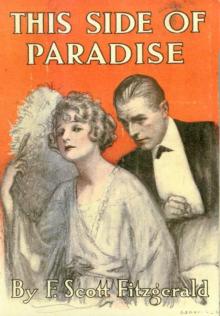 This Side of Paradise
This Side of Paradise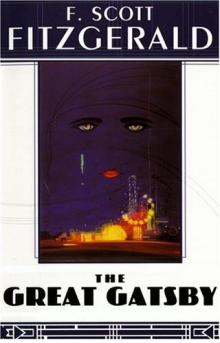 The Great Gatsby
The Great Gatsby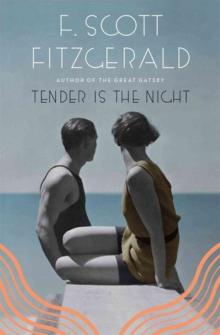 Tender Is the Night
Tender Is the Night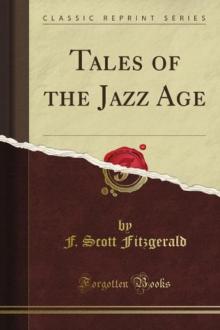 Tales of the Jazz Age (Classic Reprint)
Tales of the Jazz Age (Classic Reprint)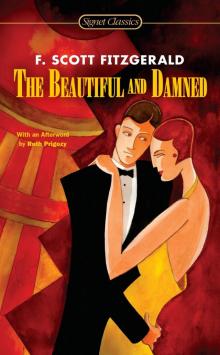 The Beautiful and Damned
The Beautiful and Damned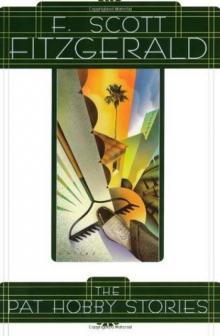 The Pat Hobby Stories
The Pat Hobby Stories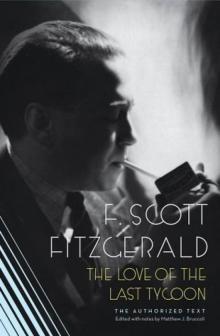 The Love of the Last Tycoon
The Love of the Last Tycoon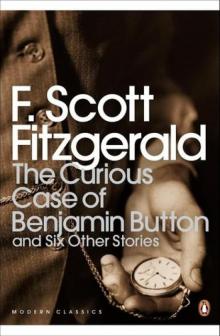 The Curious Case of Benjamin Button and Six Other Stories
The Curious Case of Benjamin Button and Six Other Stories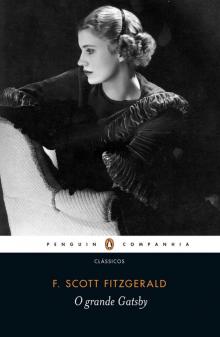 O Grande Gatsby (Penguin)
O Grande Gatsby (Penguin)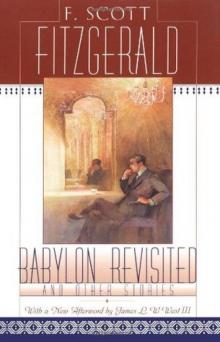 Babylon Revisited and Other Stories
Babylon Revisited and Other Stories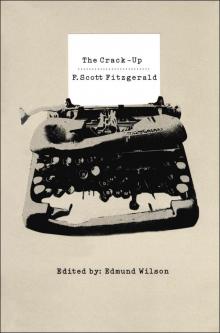 The Crack-Up
The Crack-Up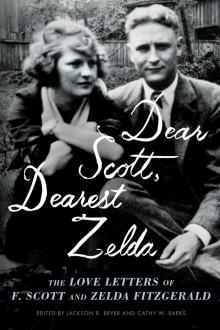 Dear Scott, Dearest Zelda
Dear Scott, Dearest Zelda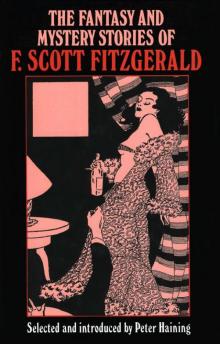 The Fantasy and Mystery Stories of F Scott Fitzgerald
The Fantasy and Mystery Stories of F Scott Fitzgerald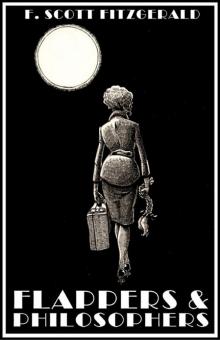 Flappers and Philosophers
Flappers and Philosophers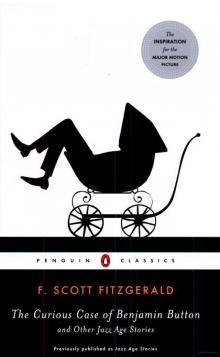 The Curious Case of Benjamin Button and Other Jazz Age Stories (Penguin Classics)
The Curious Case of Benjamin Button and Other Jazz Age Stories (Penguin Classics)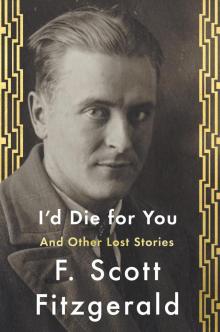 I'd Die For You
I'd Die For You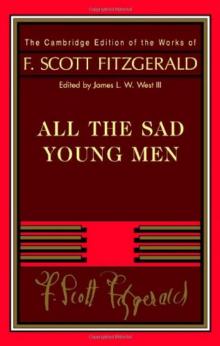 All the Sad Young Men
All the Sad Young Men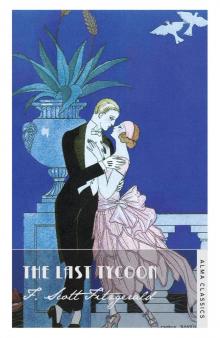 The Last Tycoon
The Last Tycoon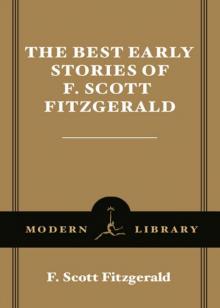 The Best Early Stories of F. Scott Fitzgerald
The Best Early Stories of F. Scott Fitzgerald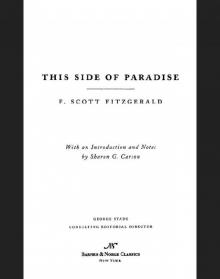 This Side of Paradise (Barnes & Noble Classics Series)
This Side of Paradise (Barnes & Noble Classics Series)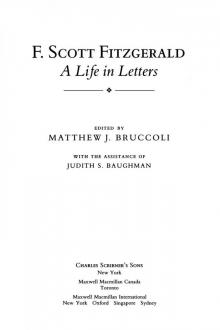 A Life in Letters
A Life in Letters Beautiful and Damned (Barnes & Noble Classics Series)
Beautiful and Damned (Barnes & Noble Classics Series) The Curious Case of Benjamin Button and Other Jazz Age Stories
The Curious Case of Benjamin Button and Other Jazz Age Stories Tales of the Jazz Age
Tales of the Jazz Age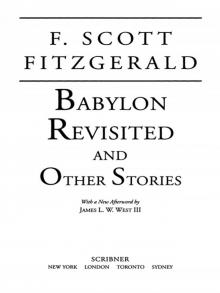 Babylon Revisited
Babylon Revisited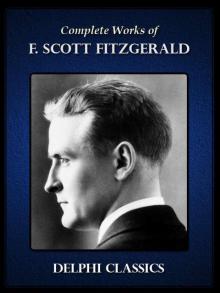 Complete Works of F. Scott Fitzgerald UK (Illustrated)
Complete Works of F. Scott Fitzgerald UK (Illustrated)